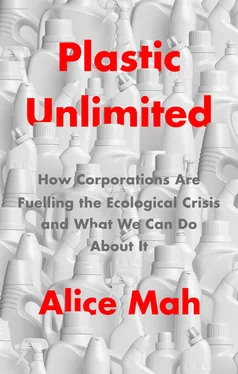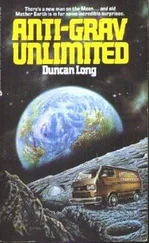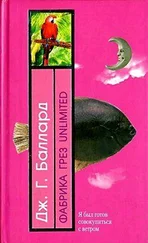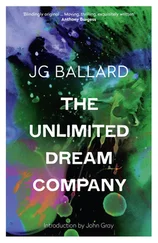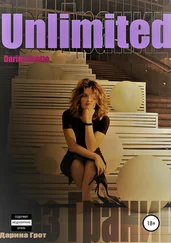39 39 Altman, ‘The Myth of Historical Bio-based Plastics’; see also John Tully, The Devil’s Milk: A Social History of Rubber (NYU Press, 2011).
40 40 Paul David Blanc, Fake Silk: The Lethal History of Viscose Rayon (Yale University Press, 2016), p. ix.
41 41 Author’s field notes, petrochemical markets workshop, London, 25–7 September 2018.
42 42 Alfred D. Chandler, Shaping the Industrial Century: The Remarkable Story of the Modern Chemical and Pharmaceutical Industries (Harvard University Press, 2005); Michael Reubold, Sean Milmo, and Martin Todd, Petrochemicals and EPCA: A Passionate Journey (European Petrochemical Association, 2016).
43 43 For the role of the Second World War in shaping the petrochemical and plastics industry, see Chandler, Shaping the Industrial Century; Freinkel, Plastic; and Gerald E. Markowitz and David Rosner, Deceit and Denial: The Deadly Politics of Industrial Pollution (University of California Press, 2002).
44 44 Rebecca Altman, ‘Time-Bombing the Future’, Aeon, 2 January 2019, at https://aeon.co/essays/how-20th-century-synthetics-altered-the-very-fabric-of-us-all; see also Freinkel, Plastic, p. 25.
45 45 Markowitz and Rosner, Deceit and Denial, p. 140.
46 46 Florian Jessberger, ‘On the Origins of Individual Criminal Responsibility under International Law for Business Activity: IG Farben on Trial’, Journal of International Criminal Justice, 8 (2010): 783–802. See also Werner Abelshauser, Wolfgang von Hippel, Jeffrey Allan Johnson, and Raymond G. Stokes, German Industry and Global Enterprise: BASF: The History of a Company (Cambridge University Press, 2003); Diarmuid Jeffreys, Hell’s Cartel: IG Farben and the Making of Hitler’s War Machine (Macmillan, 2008).
47 47 Jeffreys, Hell’s Cartel, p. 232.
48 48 Jessberger, ‘On the Origins of Individual Criminal Responsibility’.
49 49 Hubert Buch-Hansen and Lasse Folke Henriksen, ‘Toxic Ties: Corporate Networks of Market Control in the European Chemical Industry, 1960–2000’, Social Networks, 58 (2019): 24–36; see also Chandler, Shaping the Industrial Century.
50 50 Plastics Europe Deutschland e.V. and Fachgruppe Makromolekulare Chemie in der Gesellschaft Deutscher Chemiker e.V. (GDCh), ‘100 Years of Plastic: Unlimited Possibilities for the Future’, at http://www.100yearsofplastics.com.
51 51 Plastics Europe Deutschland e.V. and Fachgruppe Makromolekulare Chemie in der Gesellschaft Deutscher Chemiker e.V. (GDCh), ‘Plastics During the Pandemic’, at https://www.100jahrekunststoffe.de/en/2020/12/plastics-during-the-pandemic.
52 52 Samantha Maldonado and Marie J. French, ‘Plastics Industry Goes After Bag Bans During Pandemic’, Politico, 24 April 2020, at https://www.politico.com/states/new-jersey/story/2020/03/24/plastics-industry-goes-after-bag-bans-during-pandemic-1268843. See the discussion in chapter 5.
53 53 Michelle Meagher, Competition Is Killing Us: How Big Business Is Harming Our Society and Planet – and What to Do About It (Penguin 2020), p. 111.
54 54 Meagher, Competition Is Killing Us, p. 95.
55 55 Business Roundtable, ‘Business Roundtable Redefines the Purpose of a Corporation to Promote “an Economy That Serves All Americans”’, 19 August 2019, at https://www.businessroundtable.org/business-roundtable-redefines-the-purpose-of-a-corporation-to-promote-an-economy-that-serves-all-americans.
56 56 Joel Bakan, The New Corporation: How ‘Good’ Corporations Are Bad for Democracy (Vintage Books, 2020), pp. 29, 33. Reflecting on how the corporation has changed since he wrote the bestselling book The Corporation in 2003, Bakan argues that ‘despite all the posturing, the corporation’s character remains fundamentally the same. … It’s still a psychopath – just a more charming one now’ (pp. 57–8).
57 57 Peter Dauvergne, Will Big Business Destroy Our Planet? (Polity, 2018). Several other social scientists have written about the business of corporate environmental responsibility and private-led sustainability initiatives. For example, see Stefano Ponte, Business, Power and Sustainability in a World of Global Value Chains (Zed Books, 2019); David L. Levy and Peter Newell, The Business of Global Environmental Governance (MIT Press, 2005).
58 58 Tangpuori et al., Talking Trash; Greenpeace, Throwing Away the Future.
59 59 Tangpuori et al., Talking Trash.
60 60 Diana Barrowclough and Carolyn Deere Birkbeck, Transforming the Global Plastics Economy: The Political Economy and Governance of Plastics Production and Pollution (GEG Working Paper No. 142, 2020), at https://www.econstor.eu/handle/10419/224117; Charles et al., The Plastic Waste Makers Index.
61 61 Chandler, Shaping the Industrial Century.
62 62 Plastics Europe, Plastics – the Facts 2020; Plastics Industry Association, Size and Impact Report 2020, at https://www.plasticsindustry.org/sizeandimpact.
63 63 Chandler, Shaping the Industrial Century.
64 64 Chemical and Engineering News, Global Top 50 for 2020, https://cen.acs.org/business/finance/CENs-Global-Top-50-2020/98/i29.
65 65 Charles et al., Plastic Waste Makers Index, p. 13.
66 66 GlobalData, ‘China to Contribute 28% of Global Petrochemical Capacity Additions by 2030’, 30 October 2020, at https://www.globaldata.com/china-contribute-28-global-petrochemical-capacity-additions-2030-says-globaldata.
67 67 International Energy Agency, The Future of Petrochemicals.
68 68 Sandra Eckert, ‘Varieties of Framing the Circular Economy and the Bioeconomy: Unpacking Business Interests in European Policymaking’, Journal of Environmental Policy & Planning, 23(2) (2021): 181–93.
69 69 Barrowclough and Deere Birkbeck. Transforming the Global Plastics Economy, p. 31.
70 70 See chapter 3.
71 71 Linsey McGoey, The Unknowers: How Strategic Ignorance Rules the World (Zed Books, 2019); Hannah Jones, Violent Ignorance: Confronting Racism and Migration Control (Zed Books, 2020).
72 72 Robert D. Bullard, Dumping in Dixie: Race, Class, and Environmental Quality (Routledge, 2018); Brendan Coolsaet, ed., Environmental Justice: Key Issues (Routledge, 2020).
73 73 Bakan, The New Corporation, p. 34.
74 74 Mariana Mazzucato, The Value of Everything: Making and Taking in the Global Economy (Hachette UK, 2018), p. 271.
75 75 See Alex Serpo, ‘Don’t Let this Recycling Crisis Go to Waste’, Waste Review, 3 April 2018, at https://wastemanagementreview.com.au/five-programs-nwric/; Guillaume Gruère, ‘Never Let a Good Water Crisis Go to Waste’, OECD, 21 March 2019, at https://www.oecd.org/agriculture/never-waste-a-good-water-crisis.
76 76 Rahm Emanuel, ‘Opinion: Let’s Make Sure This Crisis Doesn’t Go to Waste’, Washington Post, 25 March 2020, at https://www.washingtonpost.com/opinions/2020/03/25/lets-make-sure-this-crisis-doesnt-go-waste.
77 77 Bernard Looney, Keynote Address, IP Week, 22 February 2020, at https://www.bp.com/content/dam/bp/business-sites/en/global/corporate/pdfs/news-and-insights/speeches/bernard-looney-keynote-address-ip-week.pdf.
78 78 Philip Mirowski, Never Let a Serious Crisis Go to Waste: How Neoliberalism Survived the Financial Meltdown (Verso, 2013).
79 79 Naomi Klein, The Shock Doctrine: The Rise of Disaster Capitalism (Macmillan, 2007).
80 80 Joseph Masco, ‘The Crisis in Crisis’, Current Anthropology, 58(S15) (2017): S65–76 (p. S65).
81 81 Max Liboiron, Pollution Is Colonialism (Duke University Press, 2021), p. 12.
82 82 Matt Hern and Am Johal, Global Warming and the Sweetness of Life: A Tar Sands Tale (MIT Press, 2019), p. 23.
83 83 Oliver Smith and Avi Brisman. ‘Plastic Waste and the Environmental Crisis Industry’, Critical Criminology, 29 (2021): 289–309 (p. 289).
84 84 Damian Carrington, ‘Why the Guardian Is Changing the Language It Uses About the Environment’, Guardian, 17 May 2019, at https://www.theguardian.com/environment/2019/may/17/why-the-guardian-is-changing-the-language-it-uses-about-the-environment.
Читать дальше
